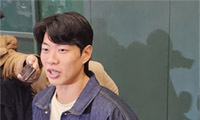THE CHEERS OF Tahrir Square were heard around the world. But if you listened carefully, you might have heard cheering from another quarter 11,000 kilometers from Cairo , in Dallas.
The revolution in Egypt has reopened a long-simmering debate about the “freedom agenda” that animated George W. Bush’s presidency. Was he right after all, as his supporters have argued? Are they claiming credit he does not deserve? And has President Obama picked up the mantle of democracy and made it his own?
The debate in Washington, and Dallas, tends to overlook the reality that revolutions in far-off countries are for the most part built from the ground up, not triggered by policy made in the halls of the West Wing. But the lessons of the Egyptian uprising will ripple through American politics, policymaking and history-shaping for some time to come.
President Bush, after all, made “ending tyranny in our world” the centerpiece of his second inaugural address, and he considers it one of his signature legacies. Promoting democracy became so associated with him, and with the war in Iraq, that Democrats believed that it was now discredited. Mr. Obama was seen by some supporters as the realist counterbalance. He preached the virtues of democracy in speeches, but did not portray it as the mission of his presidency. When the Green Movement protesters of Iran took to the streets of Tehran, Mr. Obama’s relatively muted response generated criticism.
By contrast, foreign policy specialists said, Mr. Obama’s embrace of the Egyptian protesters in the last month, if cautious at times and confused by conflicting signals from others in his administration, seemed to suggest a turning point.
"He got on the right side of this thing when a lot of the foreign policy establishment was cautioning otherwise,” said Robert Kagan, a scholar at the nonpartisan, Washington-based Brookings Institution .
For Mr. Obama, the challenge may be to define the spread of liberty and democracy as a nonpartisan American goal . Democrats who have long worked on the issue have expressed hope that he can shed the goal’s association with Mr. Bush .
Finding the right balance has never been easy. Mr. Bush focused on democracy as a goal after the invasion of Iraq found none of the weapons of mass destruction reported by American intelligence agencies. He elevated it to a central theme in his second inaugural address, according to advisers, to infuse the war on terrorism with a positive mission beyond simply hunting down terrorists. But there was always an internal tension in his administration. Former Defense Secretary Donald H. Rumsfeld makes clear in his new memoir that he thought the emphasis on democracy was misplaced, given the difficulties of transplanting Westernstyle institutions in regions accustomed to autocracy. Then, in 2006, the election of a Palestinian government led by Hamas quieted some of the administration’s ardor for democracy.
Matt Latimer, a former Bush speechwriter, recalled recently that he prepared a ringing speech on democracy for the president to deliver while in Egypt in his final year in office, only to have it rewritten at the last minute. “Demands for reform in Egypt became a mere ‘hope’ that Egypt might ‘one day’ lead the way for political reform,” Mr. Latimer wrote.
Still, in recent days, former Bush advisers like Elliott Abrams and Peter Wehner have recalled the former president’s calls for change and credit ed them with setting the stage . “He was right in saying, for the first time, that people in the Middle East wanted freedom as much as people in any other region, and in beginning through diplomacy and programs to help,” said Lorne W. Craner, a Bush assistant secretary of state for democracy . Mr. Craner said, “Bush placed us on the right side of history, and that served the interests of democrats in the region, and the United States as well.”
Not everyone sees it that way, especially in the Obama White House. “Was Bush right?” scoffed one Obama adviser . “Give me a break. How many democratic transformations like this took place when he was in office?”
Several, actually, in Ukraine, Georgia, Lebanon and Kyrgyzstan . But later events in those countries also showed that such first steps did not necessarily point in a straight line to lasting Jeffersonian democracy.
Mr. Obama’s aides said he has been focused on democracy abroad from the start. But he seems to have found more of a voice in the last six months.
Aides to Mr. Obama said he can make progress where Mr. Bush faltered because the current president has made reaching out to the Muslim world a priority and has de-emphasized the idea that the fight against terrorism means a war on Islam.
Mr. Bush also sent such messages, but Obama aides said Iraq and Guantanamo Bay undercut the impact.
“We do not make this about us,” said one senior administration official, who was not authorized to be identified. “We very carefully say this is about the people. We’re on the sidelines, we never talk about our values, we talk about universal values. Does that create space for these things to happen?” Hopefully so, the official said.
The question then becomes whether democracy promotion will again become a bipartisan aspiration.
Damon Wilson, a former Bush aide and now executive vice president of the Atlantic Council, a Washingtonbased, nonpartisan think tank, said he was surprised that Mr. Obama did not take ownership of democracy as an issue from the start. But with Egypt, he now has a chance to do that, Mr. Wilson said, expressing hope that Republicans will not turn away from the notion simply because Mr. Obama is embracing it.
“Of all the issues to fight on,” he said, “democracy is not one where we should be declaring partisan differences.”
President Obama will, some hope, overcome party politics as he promotes democracy abroad. LIBRARY OF CONGRESS
Supporters of Presidentm George W. Bush believe he can take
some credit for the success of the Egyptian revolution.
A protester outside the Orouban Presidential Palace in Cairo this
month. SCOTT NELSON FOR THE NEW YORK TIMES
PETERBAKER
ESSAY
스마터리빙
more [ 건강]
[ 건강]이제 혈관 건강도 챙기자!
[현대해운]우리 눈에 보이지 않기 때문에 혈관 건강을 챙기는 것은 결코 쉽지 않은데요. 여러분은 혈관 건강을 유지하기 위해 어떤 노력을 하시나요?
 [ 건강]
[ 건강]내 몸이 건강해지는 과일궁합
 [ 라이프]
[ 라이프]벌레야 물럿거라! 천연 해충제 만들기
 [ 건강]
[ 건강]혈압 낮추는데 좋은 식품
[현대해운]혈관 건강은 주로 노화가 진행되면서 지켜야 할 문제라고 인식되어 왔습니다. 최근 생활 패턴과 식생활의 변화로 혈관의 노화 진행이 빨라지고
사람·사람들
more많이 본 기사
- 법무부, 엡스타인 자료 추가 공개… “전용기에 트럼프 8번 타”
- ‘헉’ 오바마케어 보험료가 연 4만불… 1
- “ATM기 사용하기 겁나네”
- 트럼프, 美 3분기 깜짝성장 “관세 덕” 주장하며 대법원 압박
- 美서 돌아온 푸틴 특사…러, 우크라 평화안 대응 촉각
- 닻올린 내란전담재판부 안착할까…尹측은 “위헌심판 신청”
- 46회째 1등 안나온 파워볼 복권…당첨금 약 16억 달러로 껑충
- 트럼프 “국가안보 위해 그린란드 필요…우리가 가져야”
- 특검, “국정농단” 건진법사 징역 5년 구형…김건희는 증언 거부
- 이번엔 ‘먹는 비만약’ 경쟁…알약 위고비, 미국서 판매 승인
- “美국방부, 中격납고에 ICBM 100기이상 장전돼 있을것으로 판단”
- [새해 강화되는 노동법] 가주서 노동… 1
- 박나래, 논란 또 추가..이번엔 ‘나혼산’ 조작 방송 의혹
- ‘남가주 사랑의 교회’ 이원준 담임목사 부임
- ‘K-도넛’, 남가주 진출·본격 확장
- 이영지 맞아? 러블리 분위기 물씬..180도 달라진 ‘뼈말라’ 몸매
- 임윤아, 여우 주연상 쾌거.. “멋진 상 감사합니다”
- 4인 가족 보험료가 4만불까지… 중산층‘불안’
- 엔비디아칩 중국 밀반입?… “미국 정부, 싱가포르 업체 조사중”
- ICE 홈디포 급습 한인 체포
- ‘차량 링거’ 전현무 의료법 위반 고발당해… “적법한 진료” 해명
- 엡스타인 파일서 지웠던 트럼프 사진 복원
- 美·인니, 관세협정 모든 쟁점에 합의…내년 1월 양국 정상 서명
- 美 경제 3분기 4.3% ‘깜짝 성장’…강한 소비가 성장견인
- 악명 높은 갱단 연루 한인 기소
- 송성문, 메디컬테스트에 초긴장 “혹시 뭐 나올까 걱정했다→미국 열심히 갔는데 맨손으로 돌아올까봐”
- ‘트롯돌’ 손태진, 오디션 우승상금 7~8억?.. “무서워서 1년 넘게 안 썼다”
- 미주한인경찰협회, 지역 고교생 4명에 장학금 전달
- 팰팍 상공회의소, 고교생 2명에 장학금 전달
- 양민혁·배준호 등 병역특례 기대감 커졌다, 日 자국 아시안게임도 ‘U-21’ 참가
- 올해 워싱턴DC 식당 92곳 폐업…‘역대 최다’
- 남가주 사랑의교회 노창수 목사 은퇴식
- MD 로우스 직원, 지게차로 70대 노인 살해
- 한인 최초 NASA 우주비행사 조니 김 “우주서 김치·밥 그리웠다”
- ‘연방하원 도전장’ 척 박 예비후보 후원모임
- ‘올해는 ICE 이민자 체포 광풍의 해’
- 수학강사 맞아? 류시원♥ 19세 연하 아내, 민폐하객 미모 보니
- 에어프랑스 엔진 화재 5천피트 급강하 ‘아찔’
- ‘거액 탈세·통관 사기’ 한인 통관브로커 중형
- 뉴저지한인고교생들, 양로원에 핸드 로션 기증
- 한인은행 신용도 ‘최우수’… 대다수 ‘별 5개’ 평가
- 법정구속 오열→불복..박수홍 친형 부부, 기어이 대법원으로
- 중국 시온교회 목회자 체포… 미주 한인교계 등 ‘기도와 지원’
- 밀알·노숙자센터에 1,500달러씩 기부
- 홍진영, 주사이모와 찍은 사진에 “12년 전 촬영, 친분 없다”
- 2명에 모두 7,500달러 장학금
- 가족 얼굴 못 알아보고 성격 변한 부모님… “서양 기준으론 정상?”
- ‘뉴욕한인의 밤’ 일반한인 참여 문턱 낮췄다
- 베네수엘라 봉쇄에 금·은 값 또 최고
- 워싱턴 일원서 600만명 장거리 여행 떠난다
1/5지식톡

-
 미 육군 사관학교 West Poin…
0
미 육군 사관학교 West Poin…
0https://youtu.be/SxD8cEhNV6Q연락처:wpkapca@gmail.comJohn Choi: 714-716-6414West Point 합격증을 받으셨나요?미 육군사관학교 West Point 학부모 모…
-
 ☝️해외에서도 가능한 한국어 선생님…
0
☝️해외에서도 가능한 한국어 선생님…
0이 영상 하나면 충분합니다!♥️상담신청문의♥️☝️ 문의 폭주로 '선착순 상담'만 진행합니다.☎️ : 02-6213-9094✨카카오톡ID : @GOODEDU77 (@골뱅이 꼭 붙여주셔야합니다…
-
 테슬라 자동차 시트커버 장착
0
테슬라 자동차 시트커버 장착
0테슬라 시트커버, 사놓고 아직 못 씌우셨죠?장착이 생각보다 쉽지 않습니다.20년 경력 전문가에게 맡기세요 — 깔끔하고 딱 맞게 장착해드립니다!장착비용:앞좌석: $40뒷좌석: $60앞·뒷좌석 …
-
 식당용 부탄가스
0
식당용 부탄가스
0식당용 부탄가스 홀세일 합니다 로스앤젤레스 다운타운 픽업 가능 안녕 하세요?강아지 & 고양이 모든 애완동물 / 반려동물 식품 & 모든 애완동물/반려동물 관련 제품들 전문적으로 홀세일/취급하는 회사 입니다 100% …
-
 ACSL 국제 컴퓨터 과학 대회, …
0
ACSL 국제 컴퓨터 과학 대회, …
0웹사이트 : www.eduspot.co.kr 카카오톡 상담하기 : https://pf.kakao.com/_BEQWxb블로그 : https://blog.naver.com/eduspotmain안녕하세요, 에듀스팟입니다…
케이타운 1번가
오피니언
 조환동 / 편집기획국장·경제부장
조환동 / 편집기획국장·경제부장 AI로 가속화되는 노동시장 개편
 민경훈 논설위원
민경훈 논설위원‘크리스마스 캐롤’과 산타 클로스
 정재민 KAIST 문술미래전략 대학원 교수
정재민 KAIST 문술미래전략 대학원 교수 [정재민의 미디어풍경] 적과의 동침, 협력하며 경쟁하기
 김영화 수필가
김영화 수필가 [화요칼럼] 단호박의 온기
 김정곤 / 서울경제 논설위원
김정곤 / 서울경제 논설위원[만화경] 안중근의사 유해봉환 사업
 권지숙
권지숙 오후에 피다
 옥세철 논설위원
옥세철 논설위원말살되고 있는 유럽의 성탄절 전통, 그 원인은…

외로운 이웃들
 조지 F·윌 워싱턴포스트 칼럼니스트
조지 F·윌 워싱턴포스트 칼럼니스트 [조지 F. 윌 칼럼] MIT에 대한 트럼프의 무분별한 공격
1/3지사별 뉴스

‘연방하원 도전장’ 척 박 예비후보 후원모임
연방하원에 도전장을 낸 척 박(한국명 박영철) 예비후보 후원 모임이 지난 18일 열렸다. 척 박의 부친인 박윤용 뉴욕주하원 25선거구 (민주)…
‘경찰 무력사용지침 갱신 의무화’ 입법 초읽기

‘올해는 ICE 이민자 체포 광풍의 해’
올 한해동안 버지니아와 메릴랜드, DC 등에서 연방 이민당국에 체포된 사람이 1만명이 훌쩍 넘는 것으로 조사됐다. 또 미 전국적으로는 22만명…
“ATM기 사용하기 겁나네”

연말 ‘로드레이지’ 비극… 한인 총격 피살
연말을 맞아 도로 위에서 순간적으로 벌어진 운전 중 시비가 40대 한인 가장의 총격 피살 비극으로 이어졌다. 워싱턴주 레이시 경찰국과 서스턴 …
엡스타인 파일 공개 다음날 트럼프 사진 삭제…야당서 탄핵 경고

오늘 하루 이 창 열지 않음 닫기 





















































.png)


댓글 안에 당신의 성숙함도 담아 주세요.
'오늘의 한마디'는 기사에 대하여 자신의 생각을 말하고 남의 생각을 들으며 서로 다양한 의견을 나누는 공간입니다. 그러나 간혹 불건전한 내용을 올리시는 분들이 계셔서 건전한 인터넷문화 정착을 위해 아래와 같은 운영원칙을 적용합니다.
자체 모니터링을 통해 아래에 해당하는 내용이 포함된 댓글이 발견되면 예고없이 삭제 조치를 하겠습니다.
불건전한 댓글을 올리거나, 이름에 비속어 및 상대방의 불쾌감을 주는 단어를 사용, 유명인 또는 특정 일반인을 사칭하는 경우 이용에 대한 차단 제재를 받을 수 있습니다. 차단될 경우, 일주일간 댓글을 달수 없게 됩니다.
명예훼손, 개인정보 유출, 욕설 등 법률에 위반되는 댓글은 관계 법령에 의거 민형사상 처벌을 받을 수 있으니 이용에 주의를 부탁드립니다.
Close
x